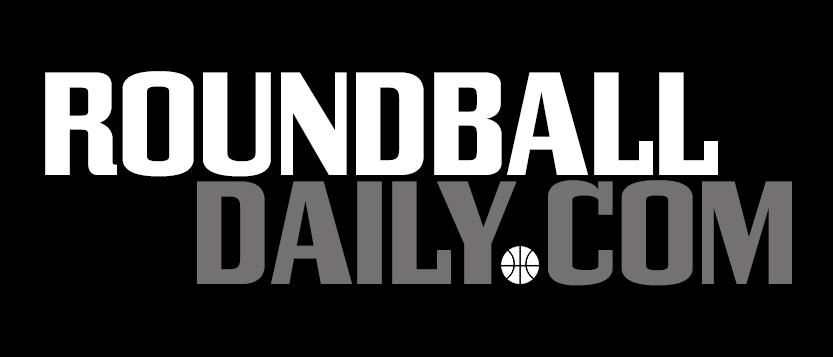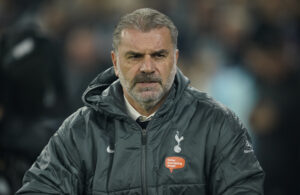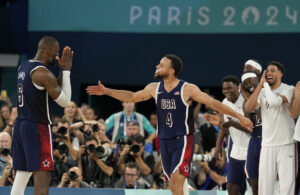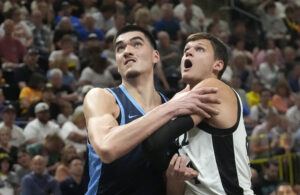- Attacking style not the only reason some Tottenham fans will back Ange Postecoglou until the bitter endPosted 4 months ago
- Paris Olympics takeaways: What did Team USA’s crunch-time lineup say about NBA’s hierarchy?Posted 10 months ago
- Zach Edey posted an easy double-double in Summer League debut. Here’s why he’ll succeed in NBAPosted 11 months ago
- What will we most remember these champion Boston Celtics for?Posted 11 months ago
- After long, seven-year road filled with excruciating losses, Celtics’ coast to NBA title felt ‘surreal’Posted 11 months ago
- South Florida men’s basketball is on an unbelievable heater– but also still on the bubblePosted 1 year ago
- Kobe Bufkin is balling out for Atlanta Hawks’ G League team. When will he be called up to NBA?Posted 1 year ago
- Former Knicks guards Immanuel Quickley, RJ Barrett may yet prove Raptors won the OG Anunoby tradePosted 1 year ago
- Rebounding savant Oscar Tshiebwe finally gets NBA chance he’s deserved for yearsPosted 1 year ago
- Is Tyrese Maxey vs. Tyrese Haliburton the next great NBA guard rivalry?Posted 2 years ago
Simone Fontecchio, Maodo Lo among non-NBA players outshining NBA stars at Olympics
- Updated: July 31, 2021
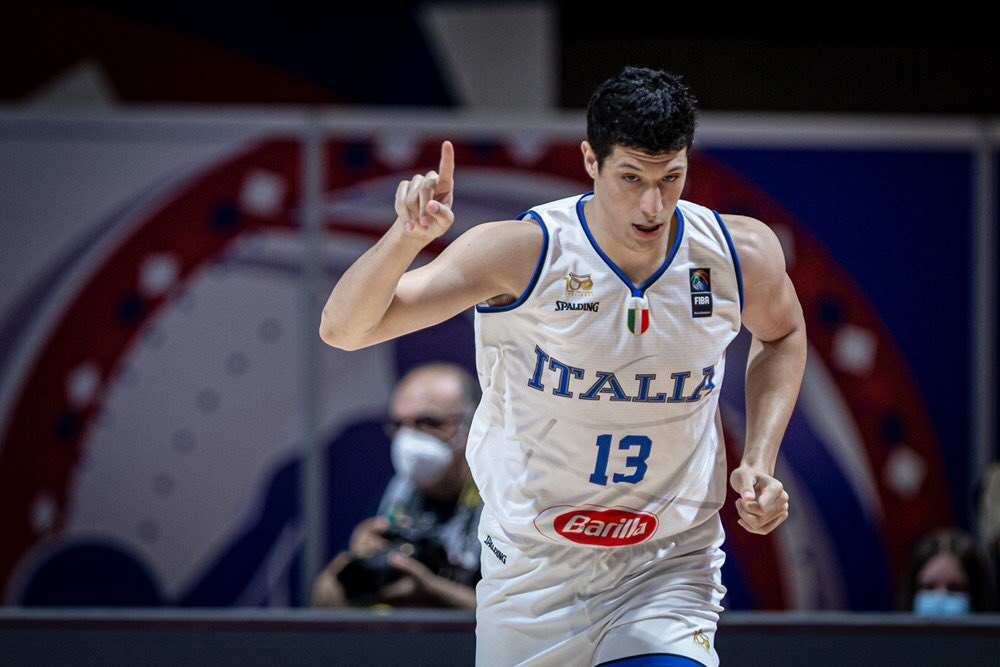
Simone Fontecchio, not NBA stars Danilo Gallinari or Nico Mannion, has been the go-to guy for Italy at the Olympics.
If you’ve been watching men’s basketball at the Tokyo Olympics, you know one thing has become absolutely clear: the world outside of the United States is as good as it’s ever been.
Every international team outside of Iran boasts NBA talent, from Germany to Australia to Nigeria to Japan. (Nigeria in particular has a roster that includes eight NBA players, yet they finished 0-3 in the group stage).
But the best snapshot of just how good the world has become at James Naismith’s genius game probably doesn’t have to do with NBA players at all.
If you’ve watched Italy or Germany in these Olympics, you might have noticed that their leading scorers and No. 1 options aren’t the dudes whose names and faces you recognize. Instead, you might have seen Simone Fontecchio draining 3s or Maodo Lo attacking the basket like a German Allen Iverson and thought, “Who’s this guy??!”
Italy boasts Danilo Gallinari on its roster– a 12-year NBA veteran and household name for hoopheads, a guy Knicks fans wish they hadn’t shipped away in the Carmelo Anthony trade, a 6-10 sharpshooter who currently qualifies as the greatest Italian basketball player in history.
Gallinari is still just 32 years old, and he just got through helping lead the Atlanta Hawks to the Eastern Conference Finals, throwing up 13.3 points and 4.1 boards per game. But he defers to Fontecchio, a 6-8 wing who recently signed with Baskonia Vitoria-Gastiez in the Spanish ACB League.
Italy’s also got Nico Mannion, current Golden State Warriors guard who starred collegiately at Arizona, and Nicolo Melli, a sharpshooter for the Dallas Mavericks and before that, the New Orleans Pelicans.
But the 25-year-old Fontecchio has been better than all of them, averaging 21 points per game through July 29, the fifth-best total in the competition. He’s also shooting 56.7 percent from the field and 66.7 percent from the three-point line, which ranks second in these Olympics.
The Pescara, Abruzzo native is one of the biggest reasons Italy is even in Tokyo–having averaged 19.7 points and 6.3 rebounds per game in the Olympic Qualifying Tournament in Belgrade, Serbia, where the Italians upset 2016 silver medalist Serbia to punch their ticket to the Olympics.
Fontecchio got a look at the NBA when he declared for the draft in 2017 at the age of 21, but he wasn’t selected and continued his career in Europe. Now, he’s turning heads all over the world.
“He’s a really good player,” said Australian and Utah Jazz sharpshooter Joe Ingles after the Aussies narrowly defeated Italy in group play. “I’d never seen him play before watching the scout for the last game and obviously playing tonight. We were just Googling where he played this year because I’m surprised that it’s not one of the biggest teams in Europe.
“[He’s] aggressive, especially on the offensive end, finding his shot and obviously shooting a high percentage as well,” Ingles added.
Here’s a look at Fontecchio leading the Azzurri at the Olympic Qualifying Tournament:
But Fontecchio isn’t the only non-NBA guy lighting it up on a team with NBA options. In fact, his former teammate at German league champion Alba Berlin is putting on for his country.
6-4 point guard Maodo Lo has been the best player for Germany, despite the fact that its roster includes former University of Michigan star and current Orlando Magic forward Moritz Wagner and Washington Wizards big man Isaac Bonga. The Germans also have former UConn national champion Niels Giffey (go Huskies), but that’s neither here nor there.
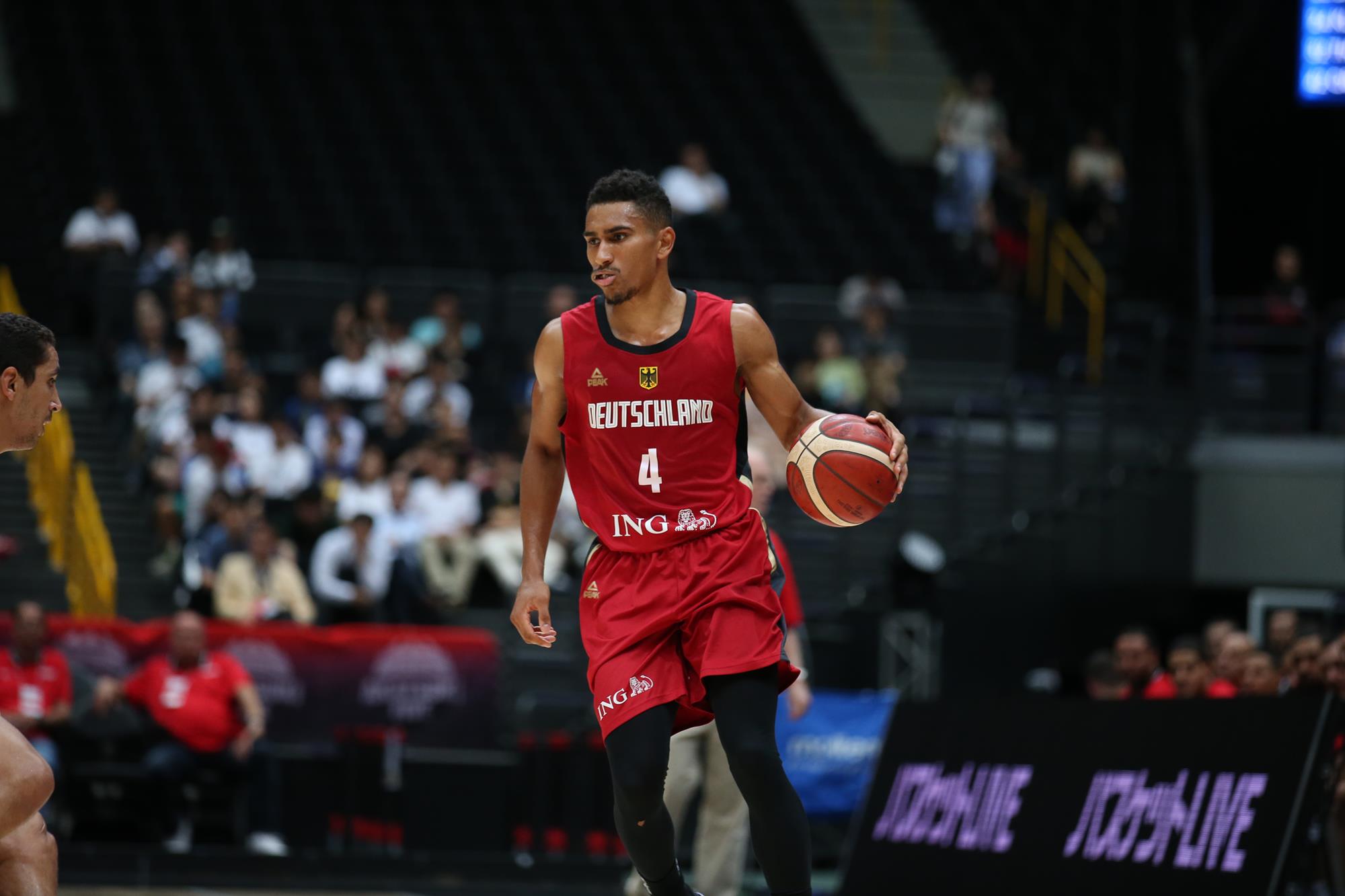
Former Columbia star Maodo Lo is Germany’s leading scorer, despite the plethora of NBA talent on its roster.
Lo, whose attacking style and midrange prowess legitimately conjures up Allen Iverson flashbacks, is averaging 18.5 points per game, which ranks 11th in the Games. He’s shooting a robust 60% from the field, and has generally been the No. 1 option for the Germans.
If it weren’t for the Berlin-born former Columbia University star, Germany wouldn’t be here either, as he put up a team-best 28 points and 9 assists in the Olympic Qualifying semifinals against Croatia, as the Germans withstood 38 points from Utah Jazz star Bojan Bogdanovic.
Lo’s performance almost single-handedly got the Germans to the final, and it’s especially impressive considering Bonga put up exactly 2 points in eight minutes of action and Wagner scored six in 10 minutes.
Wagner responded with 28 points in 28 minutes to push Germany past Brazil in the final, but Lo has been better in Tokyo, and he’ll leave as the team’s leading scorer.
The 28-year-old Lo has played for legacy club Bayern Munich and currently suits up for Alba Berlin in the German League. He played alongside Fontecchio during the 2019-20 and 2020-21 seasons. With those two starring, Berlin captured the German league title in 19-20. They finished second this past year, and 15th in the EuroLeague, which is the basketball equivalent of the European Champions League in soccer.
Team USA’s struggles in Tokyo have baffled some American basketball fans, but when you watch guys like Fontecchio and Lo light it up during these Olympics, everything starts to make a little bit more sense.
They may be cashing paychecks in Berlin instead of Boston or Brooklyn, but these guys can still ball.
